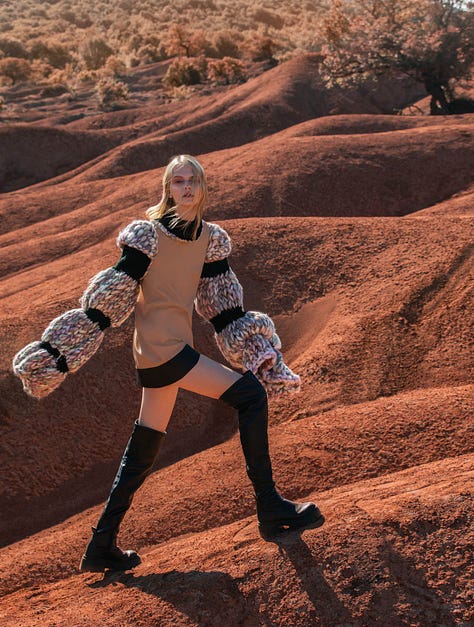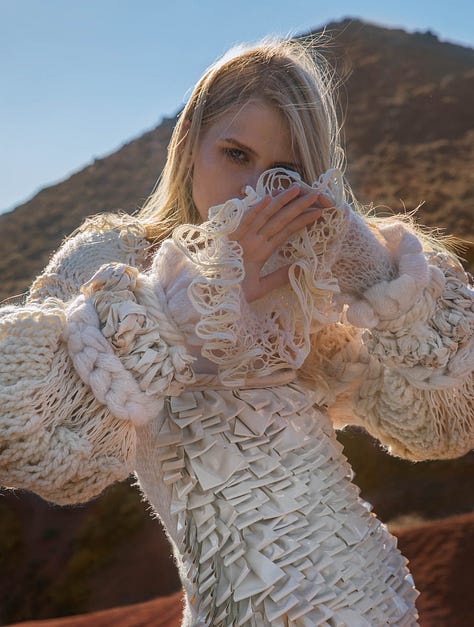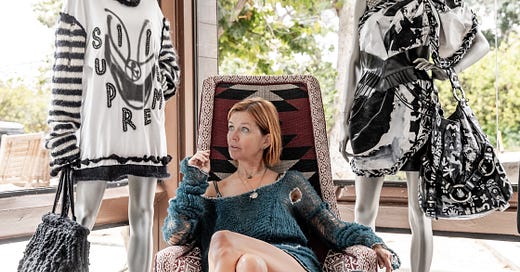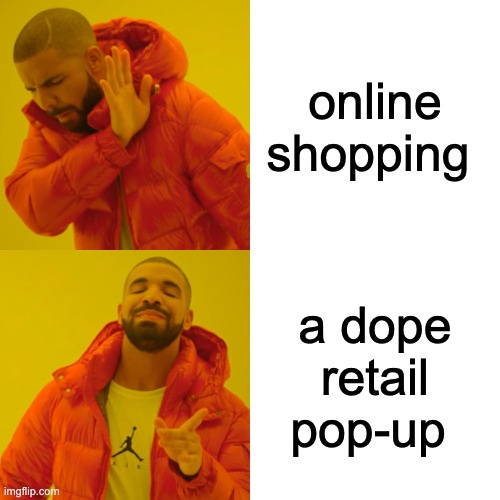5 Mic Drop Moments From a Convo on Style with Emma Trask
Carrie Underwood’s longtime stylist on slow fashion, building a brand, and why she doesn't follow trends.

Celebrity stylist. Upcycling queen. Social media holdout.
Emma Trask holds many admirable titles.
And in the throws of the global pandemic, while many of us were binge-watching Tiger King and failing our way through sourdough bread recipes, she decided to add a new line item to her resume: Sustainable brand builder.
After 20 years of award-winning styling work spanning editorial, advertising, TV/film, live music shows, and red-carpet events, the New Zealand native is stepping out from behind the scenes and into the forefront of slow fashion with her eco-conscious brand and pop-up atelier, The Chrysalis Lab.
Trask has worked with A-listers including Beyonce, Tom Cruise, Scarlett Johansson, and Brad Pitt, but it was her styling work with country music megastar Carrie Underwood that inspired me to track her down. (Spoiler alert: she’s the mastermind behind Carrie’s signature tricked-out chaps.)



In a far-reaching conversation on fashion, we covered a lot, but these are the
5 things I can’t stop thinking about.
1. Trends Are the Death of Personal Style
"I don’t really follow trends,” says Emma Trask. "I feel like people can follow trends to the detriment of their own personal style.”
The only trend worth following, she insists, is one you can make unique to you—a challenge she often tackles with superstar clients like Carrie Underwood. The two have worked together for years on live shows including Underwood’s Reflection residency in Las Vegas, the Denim & Rhinestones tour, and her recent shows with Guns N’ Roses.
One of Underwood’s signature looks, a pair of upcycled denim chaps, was reborn out of a trending moment, but tailored to her personal style.
“Chaps have typically been associated with Western wear,” says Trask. “They made a broader appearance in fashion, and we thought, how can we make this work for Carrie in this moment?”
Trask started by transforming a pair of Underwood’s everyday jeans into a chap style, added a denim romper, and built out a custom look that connects the dots between Underwood’s country roots and love of high fashion. It’s since become a signature style in her stage wardrobe—though, even Trask hates to cover up Underwood’s show-stopping gams.
"I always feel kind of bad when I’m putting a pant on her,” she laughs. “I’m like… really? I’m covering up the legs!?”
2. Consumers Have the Power in the Slow Fashion Movement
Adopting fleeting trends is not only detrimental to personal style, it’s also a nightmare for the environment.
“If everyone wants to look the same, we’re going to continue to have over-production,” says Trask.
"It scares me when a trend gets really hot because this is what fuels fast fashion. People see it on a runway or a celebrity, the industry responds to demand by over-producing millions of copies, and half of it ends up in landfills.”
For years, agents of change like Trask have been talking about fashion’s serious waste problem and what to do about it. As the industry continues to make strides toward reducing waste, there’s a growing outcry against fast fashion brands. Recently, A Business of Fashion report noted that the re-selling platform, Vestiaire Collective, broadened its ban on fast fashion brands, blocking the Gap, H&M, and others from its resale platform.

Moves like that are a win for sure, but according to Trask, consumers are the ones who hold tremendous power in slowing fashion production down. The heart of slow fashion, she says, is not only being conscious of where your clothes are from and how they’re made but also a willingness to breathe new life into existing garments.
"Look at your existing wardrobe and think, how can I rework this?” she suggests.
“The more into individual style we are, the harder it will be for the world of fast fashion to over-produce. Consumers need to take this power back into their hands.”
3. Your Closet Is an Upcycling Dream Waiting to Happen
Imagine: Your new favorite fashion piece is hiding in plain sight in the very closet you have nothing to wear in.
If that seems hard to envision, you’re not alone. It’s why Trask created The Chrysalis Lab’s Custom CoLab experience—a process where customers can work directly with her to reinvent a wardrobe piece through upcycling. With details like knitting, patchwork, trim, and embroidery, Trask can completely transform an existing piece. Customers can also combine pieces together, and add features like sleeves, collars, and pockets.


"People bring in different things,” says Trask. “Sentimental items like a grandmother’s coat, a favorite piece they’ve worn out, or a mistake of a purchase they’ve only worn once but want to give a second chance to.”
Choosing the first piece to upcycle is the hardest. After that, Trask says you’ll be a pro.
"Once folks have chosen the first piece, they usually don’t need my help in identifying what’s next. They start looking at their wardrobe differently. They become empowered to transform what they’ve got.”

4. Social Media Doesn’t Own You
Instagram to creatives: You’re nothing without me!
Emma Trask: Hold my Hollywood Style Award…
“I do live under a rock,” quips Trask. “I don’t do social media.”
In fact, fashion’s ubiquity across social platforms is a big part of why she doesn’t engage.
"I like to create from other sources outside of fashion. I think that's how you bring in new energy and fresh ideas.”

In today’s digital landscape, where a creative’s success is seemingly reliant on likes, follows, and social media engagement, it’s a rebel move.
“An agent once said I should be on Instagram because it’s good for business. But, I’m working every day!” she laughs. “So he let me slide on that one.”
#EmmaTrask is as close as one can get to connecting with her in the social space, but folks can keep up with @thechrysalislab on Instagram, which exists more for brand awareness, inspiration, and customer relationship management than direct commerce.
"From a commerce point of view, social media is set up for fast fashion,” says Trask. “Post it. Link it. Buy it. That needs to change, too. It’s fueling the cycle.”
5. Creative Experiences Matter in Retail
Since she launched The Chrysalis Lab in 2020, customers have been able to work directly with Trask and her team on Custom CoLab projects, and early adopters got to experience the brand’s Malibu-based atelier before it closed its doors.
"People were drawn to it because it was a creative space,” Trask recalls. “It wasn’t digital, you had to experience it. We all need creative experiences in the real world to inspire us.”



Today, customers can shop The Chrysalis Lab’s upcycled styles in New York at The Canvas, a retail space that brands itself as the home of rising ethical brands. Heading into 2024, Trask is planning a road show to introduce more eco-conscious shoppers to The Chrysalis Lab and connect directly with clients.
“I’ve realized how much people respond to meeting the maker behind the creative work,” she notes. “My goal is to do pop-ups domestically and internationally, and partner with other artisans to create meaningful retail experiences.”
To stay in the know about pop-ups and roadshow events, visit The Chrysalis Lab.
Work with Emma Trask on upcycling a wardrobe item through a Custom CoLab project.







